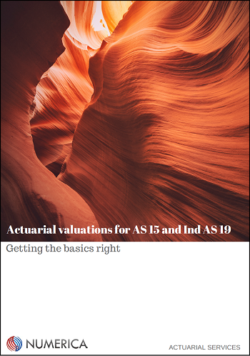
Almost all Indian companies (more than 10 employees) pay gratuity to their employees. Since, gratuity payments are an expense to the company, companies can claim tax-deduction on the same. You can read about Payment of Gratuity Act, 1972 here.
However, gratuity taxation is not as straightforward and the tax treatment depends on the specific circumstances of your company. But fret not, we got you covered below:
Step 1: Do you contribute to a gratuity fund ?
- No:
In that case, you can claim the entire amount of gratuity payment as an expense under the head “Profit and Gains of Business or Profession”. This implies that the entire amount is tax-deductible.
There are obviously some conditions to this, but they exist only to avoid misuse of a well-intended gratuity taxation benefit. Read more about them here.
(Since you do not contribute to a fund, your gratuity scheme is termed “unfunded”) - Yes:
Go to Step 2.
(Wait! Before you jump to Step 2, please read about “approved gratuity fund”.
Approved gratuity fund, is a gratuity fund which has been (and continues to be approved) by the Principal Chief Commissioner or Chief Commissioner or Principal Commissioner or Commissioner in accordance with the rules contained in Part C of the Fourth Schedule** [Source: sec 2(5) of Income Tax Act, 1961].
So, for instance, most of the companies have their fund set up with LIC Gratuity fund.
**To read more about approved Gratuity fund or how to get approval, read “Part C” of Fourth Schedule)
Now, on to step 2.
Step 2: Do you contribute to an approved gratuity fund ?
- No:
We think this is not the best approach for various reasons. From a tax perspective, you would lose out the tax benefits listed down below for not having an approved gratuity fund. So hurry up! Get your gratuity fund approved. - Yes:
Go to step 3!! (you’re almost there!).
Step 3: Was your approved fund set up this year ?
- No:
Assuming that you have been making regular payments to the fund, a maximum of 8.33% of the basic salary is tax-deductible. Please note, that the basic salary to be considered in this case has to be in respect of the service accrual over the relevant financial year. - Yes:
A tax deduction of up to 8.33% of basic salary for each year of past service is allowed. This “Initial Contribution” can also be paid in five annual instalments (to ease the burden). For more information, please read Rule 104 of Income Tax Rules, 1962
Step 4: So, now do you know all about gratuity taxation ?
Yes:
I am ready to take on the world now! (P.S. We are happy to hear that! :D)
No:
I am still confused (even after reading each of the links). Can you please tell me which one is better from a tax-perspective: unfunded or approved gratuity fund ?
Well, we wish it was that simple and black-and-white. There are a lot of factors that need to be considered. Please feel free to contact us to help you make an informed decision.
So, to conclude, here are the key takeaways on gratuity taxation:
- If you have an approved fund, contributions made in the particular financial year are tax-deductible with a maximum of 8.33% of the basic salary of employees (read step 3).
- If you are unfunded, any amount of gratuity paid or payable during the relevant financial year is tax-deductible (read step 1).
Download our guide on basics of actuarial valuation under AS 15 and Ind AS 19 by clicking on the picture below:


January 23, 2018 at 5:02 pm, Superannuation fund taxation from employer's perspective • Numerica said:
[…] Having said the above, the tax treatment principles are (kind of) similar to the gratuity fund. Read about taxation on gratuity fund here. […]